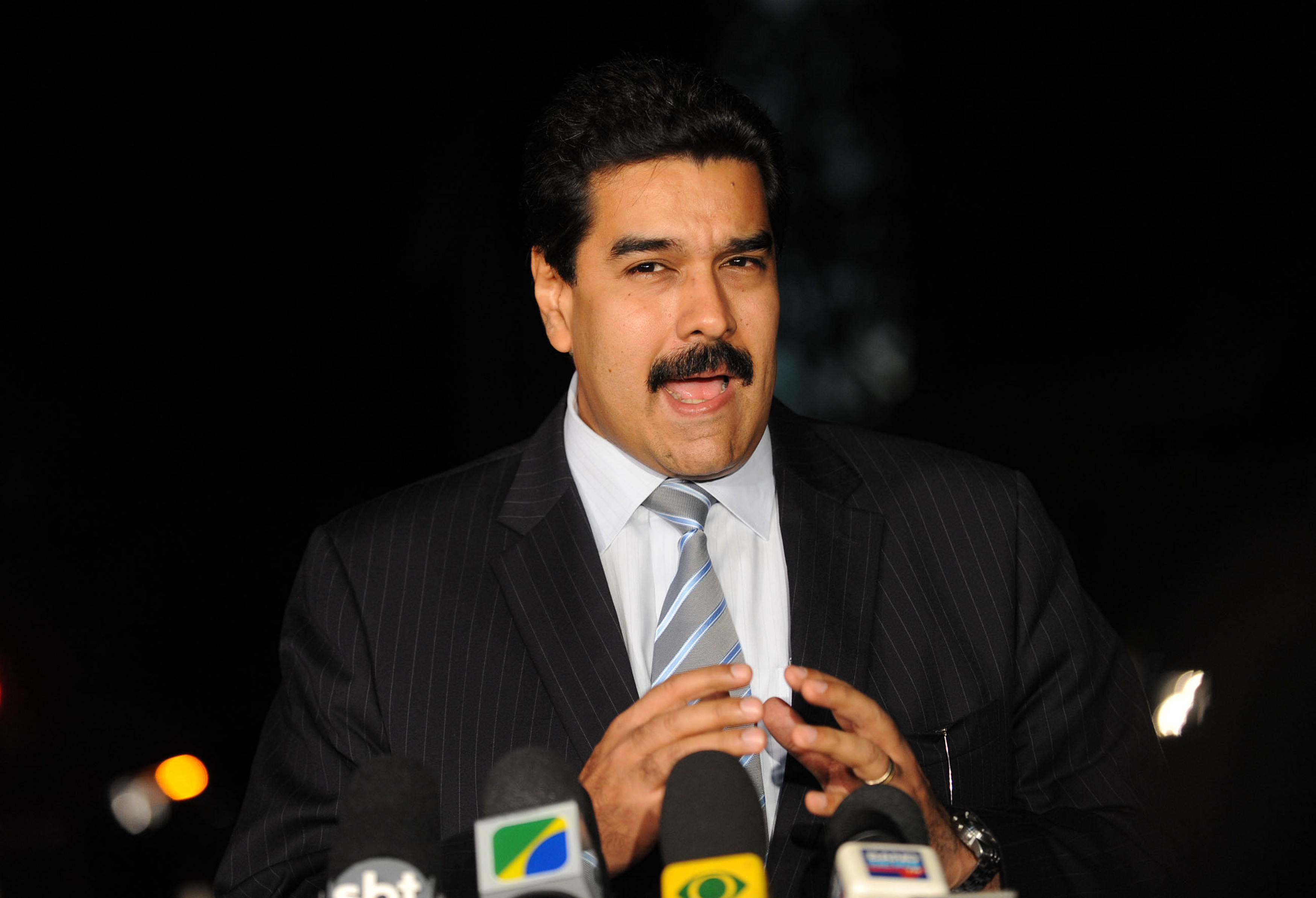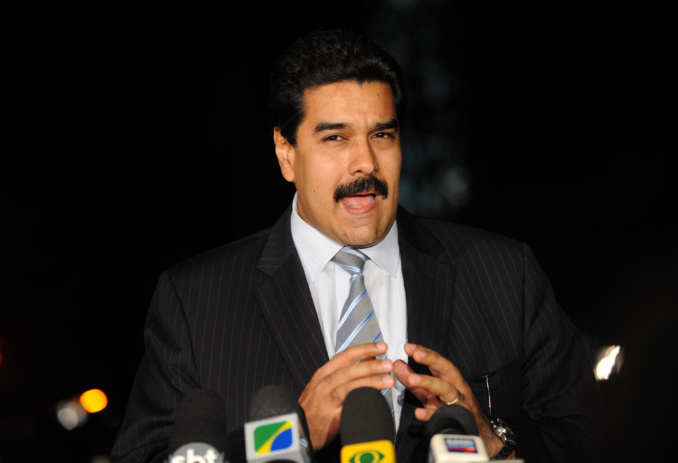In the days of the General Assembly, US authorities demonstrated a dual approach to the Venezuelan problem, the most acute now for the whole of Latin America. On the one hand, on Tuesday Donald Trump urged the whole world "to resist socialism and suffering that it brings" and cited the situation in the Bolivarian republic as an example. In addition, on the same day, the US Treasury imposed sanctions against Venezuela’s First Lady Cilia Flores, Defense Minister Vladimir Padrino Lopez, Minister of Communications and Information Jorge Rodriguez, as well as Vice President Delcy Rodríguez. At the same time, yesterday, Donald Trump said he was ready to negotiate with President Maduro (who had previously expressed a desire to meet with his American counterpart), and the State Department announced allocation of $ 48 million for humanitarian aid to Venezuela. The money will be spent to buy water and food, hygienic goods, tents, provision of education and employment assistance.
Caracas responded to the speech of Donald Trump, in which it was noted that "the Maduro regime can be easily overthrown by the military if the military wants it." The Venezuelan Foreign Ministry interpreted these words as "assistance to a military uprising." But the news about allocation of money were left without comment. At the same time, the authorities of the Bolivarian Republic did not abandon the idea of asking the UN $ 500 million to return those Venezuelans who left the country.
Nicolas Maduro told about his intention to ask for financial assistance on September 21. Then he shared information that only in Peru about 5 thousand migrants expressed a desire to return home. The Venezuelan leader claims that he wants to spend money on the "Return to Homeland" program, launched in early autumn. In its framework, Venezuelans can fly to Venezuela from other countries of Latin America for free. By September 20 this opportunity was used by about 3 thousand people.
The number of people who left Venezuela, however, is hundreds of times more than number of those who returned and expressed their desire to return. According to the UN, about 2.3 million people have left Venezuela since 2014. The greatest burden falls on Colombia, Ecuador, Peru and Brazil. However, the Venezuelan authorities deny existence of the crisis. Three weeks ago, Vice President Delcy Rodriguez complained to UN Secretary General Antonio Guterres that "some officials of the organization call ordinary migration flows a humanitarian crisis to justify an external invasion." A week later, the Minister of Communications and Information of the country, Jorge Rodriguez, assured that the flow of migrants from Venezuela increased due to "false alarms, false news, media and psychological manipulation."
However, representatives of Caracas failed to achieve this goal. Yesterday Argentina, Canada, Colombia, Chile, Paraguay and Peru appealed to the ICC to initiate a criminal case against the Venezuelan president in connection with "abuse of power" and "crimes against humanity". President Peru Martín Vizcarra said that the scale of the influx of refugees "has no precedent" in the Latin American region and "requires collective responses from the international community." And his Colombian colleague Iván Duque added that the only way out of the crisis is "the end of the dictatorship, the return to democracy and complete freedom."
source: reuters.com
Caracas responded to the speech of Donald Trump, in which it was noted that "the Maduro regime can be easily overthrown by the military if the military wants it." The Venezuelan Foreign Ministry interpreted these words as "assistance to a military uprising." But the news about allocation of money were left without comment. At the same time, the authorities of the Bolivarian Republic did not abandon the idea of asking the UN $ 500 million to return those Venezuelans who left the country.
Nicolas Maduro told about his intention to ask for financial assistance on September 21. Then he shared information that only in Peru about 5 thousand migrants expressed a desire to return home. The Venezuelan leader claims that he wants to spend money on the "Return to Homeland" program, launched in early autumn. In its framework, Venezuelans can fly to Venezuela from other countries of Latin America for free. By September 20 this opportunity was used by about 3 thousand people.
The number of people who left Venezuela, however, is hundreds of times more than number of those who returned and expressed their desire to return. According to the UN, about 2.3 million people have left Venezuela since 2014. The greatest burden falls on Colombia, Ecuador, Peru and Brazil. However, the Venezuelan authorities deny existence of the crisis. Three weeks ago, Vice President Delcy Rodriguez complained to UN Secretary General Antonio Guterres that "some officials of the organization call ordinary migration flows a humanitarian crisis to justify an external invasion." A week later, the Minister of Communications and Information of the country, Jorge Rodriguez, assured that the flow of migrants from Venezuela increased due to "false alarms, false news, media and psychological manipulation."
However, representatives of Caracas failed to achieve this goal. Yesterday Argentina, Canada, Colombia, Chile, Paraguay and Peru appealed to the ICC to initiate a criminal case against the Venezuelan president in connection with "abuse of power" and "crimes against humanity". President Peru Martín Vizcarra said that the scale of the influx of refugees "has no precedent" in the Latin American region and "requires collective responses from the international community." And his Colombian colleague Iván Duque added that the only way out of the crisis is "the end of the dictatorship, the return to democracy and complete freedom."
source: reuters.com



















